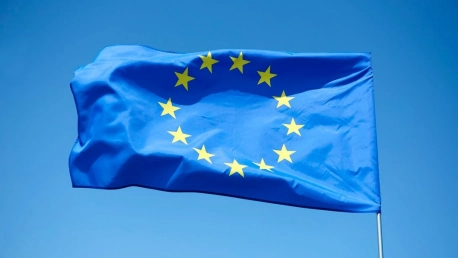The European Data Protection Supervisor (EDPS) has taken an extraordinary step, spotlighting data privacy concerns at the core of the European Union by issuing a stark warning to the European Commission itself. At the heart of the warning is the Commission’s use of Microsoft 365 software, which has been flagged for potential breaches in data protection laws. Scrutiny has intensified due to perceived vulnerabilities in the handling of sensitive information and ambiguities in the contracts with Microsoft regarding the management and safety of data. This intense focus by the EDPS highlights the need for the European Commission to ensure full compliance with stringent EU data regulation standards, reflecting the broader EU agenda that prioritizes the protection of personal data within its member states. The warning suggests broader implications for all EU bodies to re-evaluate their data management systems to align with the rigorous privacy framework championed by the Union.
The EDPS Probe and Its Ramifications
The investigations conducted by the EDPS have revealed alarming evidence of the European Commission’s non-compliance with Regulation (EU) 2018/1725, which underscores strict regulations on data transfers beyond the bounds of the European Economic Area (EEA). Entrenched in this is the concern that personal data, inherently private and sensitive, could be mishandled or transported in ways that betray the rigid privacy tenets endorsed by the European Union. This revelation has not just spotlighted the potential breach but also flagged the lack of explicit provisions in Microsoft’s contractual agreements with their clients regarding data usage, transparency, and control.Embattled with these findings, the European Commission now faces a stringent deadline of December 9, 2022, to rectify their data processing activities to be in stringent alignment with the EU’s data protection laws. The gist of the EDPS’s admonishment isn’t solely about the theoretical risk but tangibly about fortifying the bulwarks against any actionable breaches that could compromise the sanctity of personal data.
Microsoft’s Position and EU Data Protection Trends
Microsoft has shown a willingness to work with the European Commission after the European Data Protection Supervisor (EDPS) raised concerns about data transparency. The tech titan is engaging in dialogue to resolve these issues, reflecting their acknowledgment of the EU’s rigorous data protection standards.The examination of Microsoft’s handling of data highlights the EU’s focus on privacy and data security, particularly in light of worries about data transfers to the US, a nation previously implicated in widespread surveillance. This scrutiny is part of a wider trend that ties together international policies, corporate practices, and personal privacy in the digital age. This ongoing story illustrates the negotiation between multinational companies and regulatory bodies striving to protect user data in an increasingly interconnected world.









